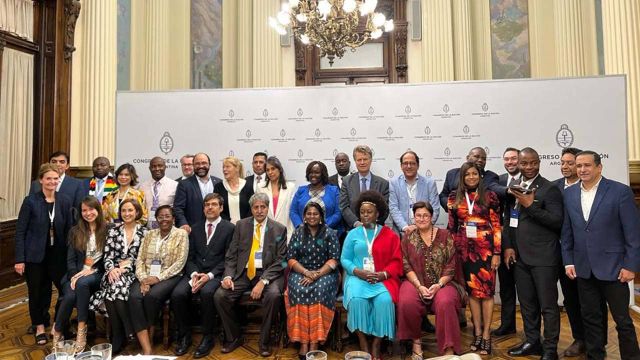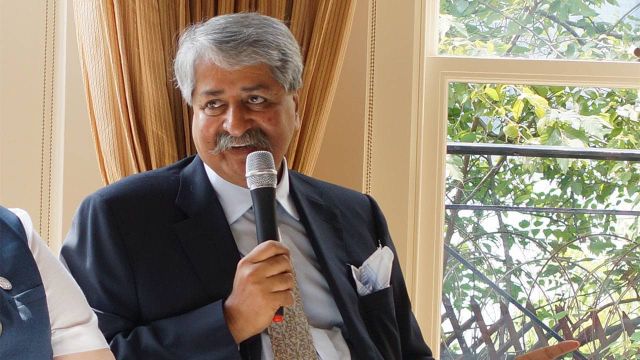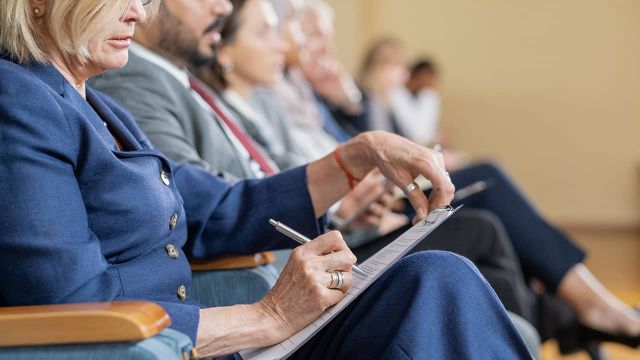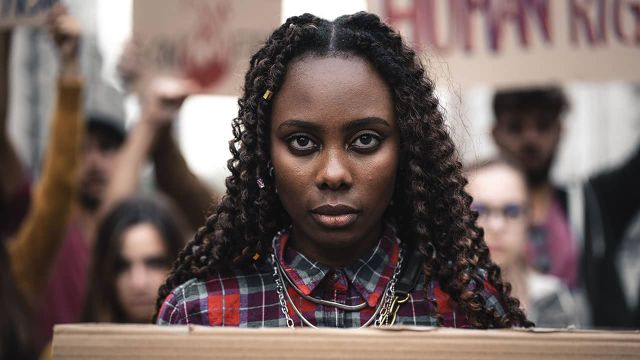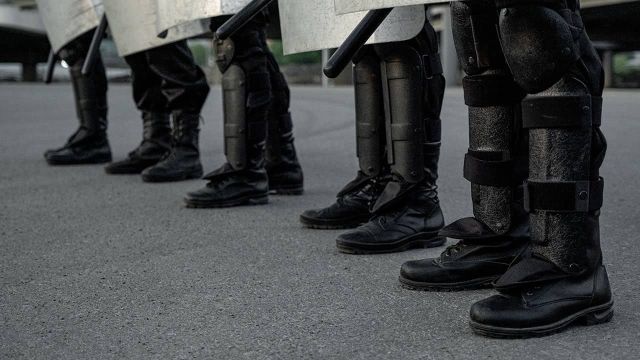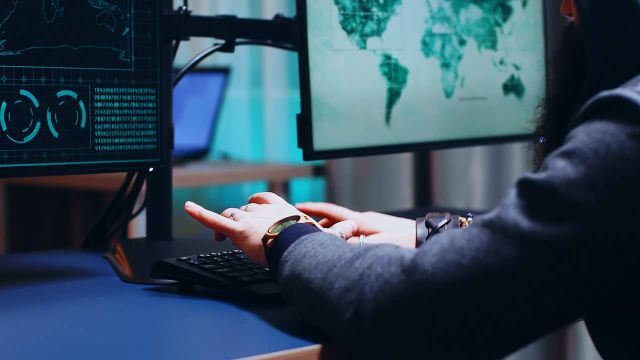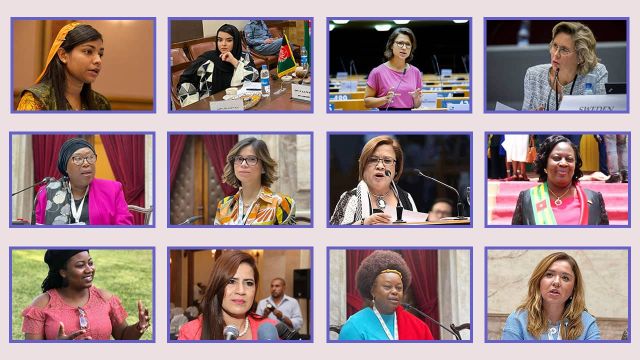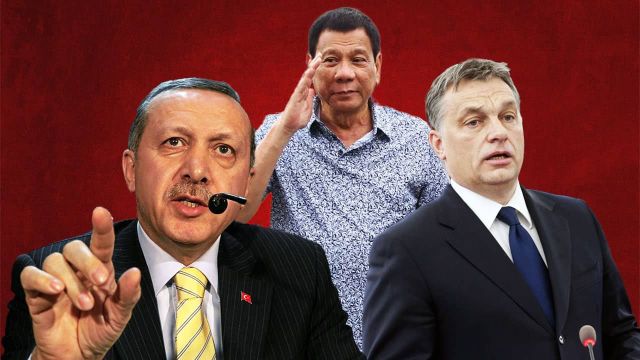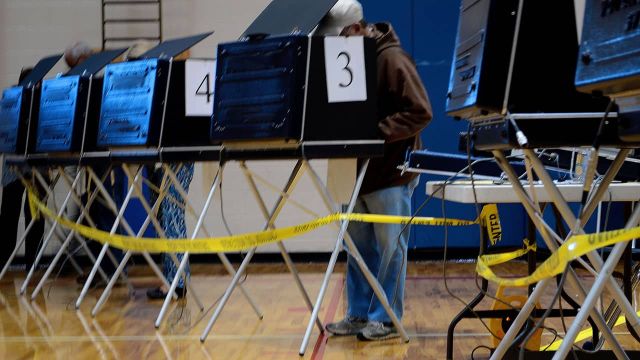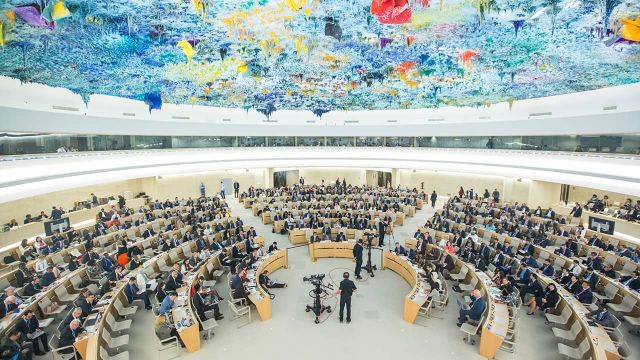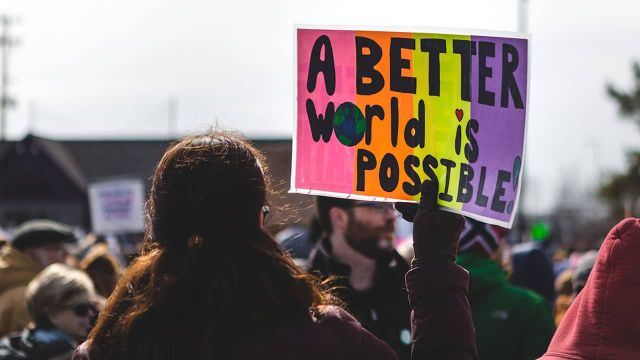Astroturfing
The practice of publishing opinions or comments on the internet, in the media, etc., that appear to come from ordinary members of the public but actually come from a particular company or political group, as a way to make it seem that a product, policy, opinion, etc. is very popular or has a lot of public support.
Authoritarianism
Often defined as the concentration of power in a small group of people who act in ways that are not constitutionally accountable to the people they are meant to represent and serve.
Branches of Government
To ensure a separation of powers, governments are made up of three branches: the legislative (makes all laws), the executive (enforces laws), and the judicial (interprets the law).
Check and Balances
Mechanisms that distribute power throughout a political system to prevent any institution or individual from exercising total control. This principle is core to all modern democracies.
Civil Society
An aggregate of non-governmental organizations and institutions that involve diverse cultural, religious, and special interest groups that represent and implement the interests and will of citizens and have the power to influence the actions of elected policymakers and businesses.
Civil Society Organizations (CSOs)
Any non-profit, voluntary citizens’ group organized on a local, national, or international level with a common interest to perform a variety of services and humanitarian functions, bring citizens’ concerns to governments, monitor policies, and encourage political participation at the community level. CSOs provide analysis and expertise, serve as early warning mechanisms, and help monitor and implement international agreements.
Code of Ethics
A set of values, principles, and standards to guide individuals’ decision-making and everyday professional conduct.
Cybersecurity
Technologies, processes, and practices designed to protect networks, devices, programs, and data from attack, damage, or unauthorized access. Cyber security may also be referred to as information technology security, which is a set of cybersecurity strategies that prevents unauthorized access to organizational assets such as computers, networks, and data.
Data Protection
A set of strategies and processes used to secure data privacy, availability, and integrity. A protection strategy is vital for any organization that collects, handles, or stores sensitive information.
Democracy
A universally recognized ideal where human rights and fundamental freedoms are guaranteed and respected, people’s freely expressed will is exercised, all adults have equal rights, and people are free from discrimination.
Democratic Backsliding
Dismantling democratic norms and institutions by purposeful elite actors in a political system.
Disinformation
False or misleading content that is spread to deceive or secure economic or political gain and may cause public harm.
Doxing
The act of publicly providing personally identifiable information about an individual or organization, usually via the Internet.
E-Governance
The application of information technology for delivering government services, exchange of information, communication transactions, integration of various stand-alone systems between government to citizen (G2C), government-to-business (G2B), government-to-government (G2G), government-to-employees (G2E) as well as back-office processes and interactions within the entire governance framework. Through e-governance, government services are made available to citizens. The three main target groups distinguished in governance concepts are government, citizens, and businesses/interest groups.
Electronic government (or e-government)
Is the application of Information and Communication Technologies (ICTs) to government functions and procedures to increase efficiency, transparency, and citizen participation. The application of e-government allows for higher levels of effectiveness and efficiency in governmental tasks, improvement of processes and procedures, increases the quality of public services, improves the use of information in the decision-making processes, and better communication among different governmental offices.
Equality before the law
The right of every individual to be treated equally before the law.
Freedom of Association
The right of individuals to interact and organize among themselves to collectively express, promote, pursue, and defend common interests. This includes the right to form trade unions.
Freedom of Expression
The right to hold opinions without interference and seek, receive, and impart information and ideas through any media, regardless of frontiers.
Human Rights
Rights inherent to all human beings, regardless of race, sex, sexual orientation, gender identity or expression, nationality, ethnicity, language, religion, or other status.
Inclusion
Removing barriers, including discrimination, to give equal rights, access, and opportunities to individuals regardless of race, sex, sexual orientation, gender identity or expression, nationality, ethnicity, language, religion, or any other status.
LGBTQI+
Lesbian, gay, bisexual, transgender, queer, intersex individuals, and other self-identifications under the umbrella of ‘sexuality’ and/or ‘gender.’
Mass Surveillance
Systems or technologies that collect, analyze, and/or generate data on indefinite or large numbers of people instead of limiting surveillance to individuals about which there is reasonable suspicion of wrongdoing. Under available forms of mass surveillance, governments can capture all aspects of our lives. Mass surveillance can subject a population or significant component thereof to indiscriminate monitoring, involving a systematic interference with people’s right to privacy and all the rights that privacy enables, including the freedom of expression and association.
Misinformation
False or misleading content shared without harmful intent, though the effects can still be harmful.
Parliamentary Sovereignty
The legislative body has absolute sovereignty and is supreme over all other government institutions, including executive or judicial bodies. It also holds that the legislative body may change or repeal any previous legislation, so it is not bound by written law (in some cases, not even a constitution) or by precedent. In some countries, parliamentary sovereignty may be contrasted with separation of powers, which limits the legislature’s scope to general law-making and makes it subject to external judicial review, where laws passed by the legislature may be declared invalid in certain circumstances.
Political repression
The act of a state entity controlling citizens by force for political reasons, mainly to restrict or prevent their ability to fully participate in the political life of a society.
Press freedom
An essential pillar to any democracy and the ability of journalists to report on public matters without interference from the government.
Rule of Law
As defined by the United Nations, is a principle of governance in which all persons, institutions, and entities, public and private, including the state itself, are accountable to laws that are publicly promulgated, equally enforced, and independently adjudicated, and which are consistent with international human rights norms and standards. It requires measures to ensure adherence to the principles of supremacy of the law, equality before the law, accountability to the law, fairness in the application of the law, separation of powers, participation in decision-making, legal certainty, avoidance of arbitrariness, and procedural and legal transparency.
Separation of powers
The idea that the three branches of the state are functionally independent from one another, and no individual has the power to span these.
State Capture
A systemic political corruption in which private interests significantly influence a state’s decision-making processes to its advantage.
Sustainable Development Goals (SDGs)
Blueprints adopted by world leaders at the UN to achieve a better and more sustainable future for all individuals. The SDGs address humanity's global challenges, including poverty, inequality, climate change, environmental degradation, peace, and justice. The 17 Goals are interconnected.
Weaponization of Information
Using information, disinformation, or propaganda as a weapon to destabilize a population and disable the target country.
Technology-Facilitated Gender-Based Violence (TGBV)
According to the United Nations Population Fund (UNFPA), TGBV is an act of violence perpetrated by one or more individuals that is committed, assisted, aggravated, and amplified in part or entirely by the use of information and communication technologies or digital media against a person based on their gender.

